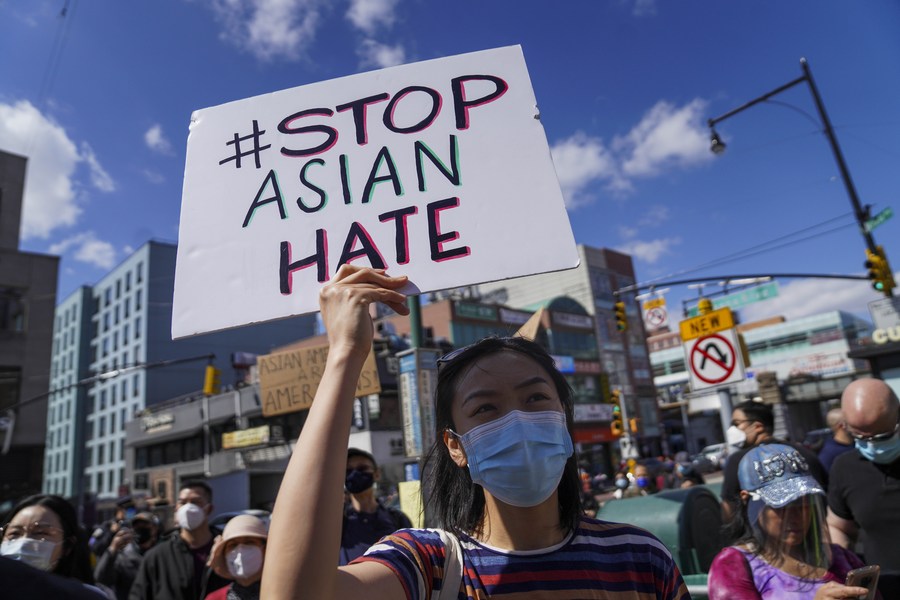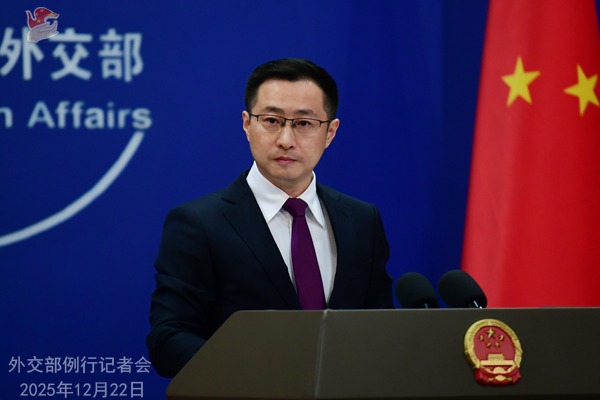US politicians denounce anti-China talk


A group of Asian American politicians recently called for other politicians to refrain from using inflammatory rhetoric about China and anti-Asian terms ahead of the midterm elections.
A new report showed that such rhetoric has resulted in blaming Asian Americans for being responsible for COVID-19, US economic and national security problems.
Titled The Blame Game and released this month by Stop AAPI Hate, the report examined how political rhetoric against China has inflamed Anti-Asian scapegoating since the pandemic started and the relationship between US and China started deteriorating.
The report analyzed 11,467 hate incidents targeting Asian Americans and Pacific Islanders (AAPIs) between March 2021 and March 2022. It was found that 20 percent or 2,255 incidents were related to the use of language that scapegoated Asians and Asian Americans.
The vast majority - 96 percent - of the scapegoating incidents are related to blaming Asians and Asian Americans for the COVID-19 pandemic, "the latest in a long history of scapegoating Asians and Asian Americans for public health reasons", according to the report.
Former President Donald Trump famously called COVID-10 "Kung Flu". The National Republican Senatorial Committee issued a report in 2021 stating that "China did this." Moreover, "The Chinese Communist Party caused this pandemic."
Following Trump's "China virus" tweet, Twitter hashtags expressing anti-Asian sentiment increased by 174 times, according to the report.
"I was on the uptown 6 train between Grand Central and 23rd St. A man said to me, 'Don't stand so close. You brought COVID into this country. I will drag you, your [explicit] husband, and your kids off the train and kill you,'" one Asian American in New York recounted her experience to Stop AAPI Hate.
Pointing finger at China as the source of COVID-19 led to harm against Asian Americans. STAATUS (Social Tracking of Asian Americans in the US) Index Report 2022 showed that 21 percent of over 5,000 respondents agreed that Asian Americans are at least partially responsible for COVID-19, up from 11 percent in 2021.
As the tension continues between US and China, US politicians have accused China as a national security threat for espionage and the cause of US job losses in the past years.
As a result, some Asian Americans experienced hate incidents with similar rhetoric that accuse them of spying on behalf of the Chinese government and viewed as economic threat to the US.
The analysis found that a small number - four percent of all scapegoating incidents - were related to Asian Americans being accused of spying on behalf of the Chinese government. Only one percent of all scapegoating incidents were about blaming Asians and Asian Americans for US economic hardship.
However, such incidents often involved personal threats of harassment and violence, according to the report.
"I was working at an Asian grocery store. Our store got a phone call from a stranger who threatened to rob us," an Asian American in the Midwest shared his experience. "That man said that Asians steal jobs and send all US dollars back to China, so it is time to f**k our store up."
"Cashier at a retail store shared that she suspected that her neighbor who happens to be a postdoctoral Asian male engineer was secretly a '5G China Spy'," another in California said.
US Representative for California Judy Chu, speaking at a conference, said politicians need to be careful with their language.
"We need to be deliberate in what and who we criticize. It should be specific to those who are responsible, not broad statements that scapegoat all Chinese people," Chu said.
Representative Grace Meng from New York also echoed Chu and said: "Leaders, like it or not, are role models, and they have a large platform. [So] it is really important that we are careful and nuanced with the words that we use."

































